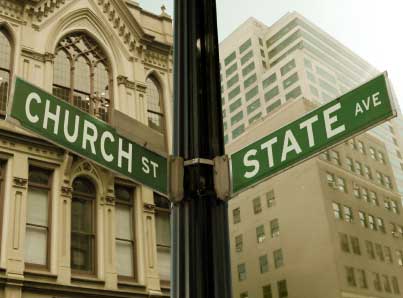A church in Yuma, Ariz., faced unfair treatment when it was left paying the mortgage on a building the city would not allow it to occupy.
The Alliance Defense Fund, a legal alliance of Christian attorneys and like-minded organizations defending the right of people to freely live out their faith, announced Tuesday that the church won its legal battle on appeal and can now seek damages, including payment for the money it lost.
“Churches should not be singled out for discrimination by a city’s zoning restrictions,” says Byron Babione, who argued before the 9th Circuit in April of last year. “Government officials cannot use broad commercial reasons to favor non-religious businesses or membership organizations over religious ones. The city’s actions left this small congregation with a mortgage to pay on a building it couldn’t use for two years while it had to pay for another meeting place at the same time.”
In a lawsuit ADF attorneys filed, the U.S. Court of Appeals for the 9th Circuit ruled that the city did not treat the church equally with similarly situated groups and businesses as required by federal law. The Religious Land Use and Institutionalized Persons Act protects churches from discrimination in land use disputes with local governments.
The court wrote in its opinion: “It is hard to see how an express exclusion of ‘religious organizations’ from uses permitted as of right by other ‘membership organizations’ could be other than ‘less than equal terms’ for religious organizations.”
Even though businesses and other membership organizations can build “as of right,” meaning they do not need a special permit, the city requires religious organizations to obtain a conditional use permit to operate. The city refused the church’s permit request in 2007 on the basis that the church would “blight” an arts and entertainment district in the city’s Old Town District.
The court noted that “many of the uses permitted as of right would have the same practical effect as a church of blighting a potential block of bars and nightclubs.
“An apartment building taking up the whole block may be developed as of right, and so may a post office or prison. Prisons have bars, but not the kind promoting ‘entertainment.’ Thus the ordinance before us expressly treats religious organizations on a less than equal basis.”
Attorneys at ADF filed the lawsuit Centro Familiar Cristiano Buenos Nuevas Christian Church v. City of Yuma in May 2008. A federal judge ruled against the church in January 2009, and ADF appealed to the 9th Circuit. The U.S. Department of Justice filed a friend-of-the-court brief in support of the church in August 2009 and argued before the 9th Circuit in April 2010.
See an error in this article?
To contact us or to submit an article





















